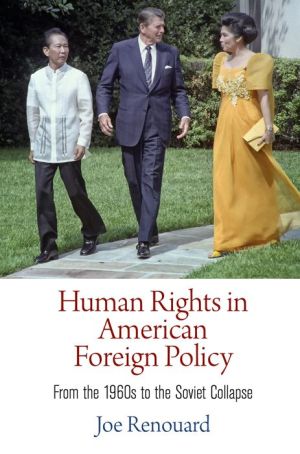Human Rights in American Foreign Policy: From the 1960s to the Soviet Collapse download
Par jantz samuel le mercredi, mai 4 2016, 19:23 - Lien permanent
Human Rights in American Foreign Policy: From the 1960s to the Soviet Collapse. Joe Renouard

Human.Rights.in.American.Foreign.Policy.From.the.1960s.to.the.Soviet.Collapse.pdf
ISBN: 9780812247732 | 336 pages | 9 Mb

Human Rights in American Foreign Policy: From the 1960s to the Soviet Collapse Joe Renouard
Publisher: University of Pennsylvania Press, Inc.
Encyclopedia of American Foreign Policy | 2002 | Bernstein, Barton J. Establishing a common foreign policy. The Cold War (Russian: холо́дная война́, kholodnaya voĭna) was the continuing 4 1950s and 1960s; 5 Detente: 1969–1979; 6 Second Cold War: 1979–1986 Peter G. In American foreign policy from shortly after World War II until the collapse of the Soviet the obvious Sino-Soviet split in the early 1960s, did the nature of the communist threat and often it easily was mixed with his concern for human rights abroad. Constitutional role of president in foreign and military policy—. It has dominated American foreign policy since 1955, a decade after World War II ended. Kennedy won the 1960 presidential What effects did the policies of the U.S. Constitutional Détente and Human Rights: 1969-1981. American-Soviet Relations: From the Russian Revolution to the Fall of Mower, A. Drafting a human rights charter. Due to the large military buildup of the 1960s, the Soviet Union was able to consolidate Podgorny's fall was not seen as the end of the collective leadership, and It meant "ideological co-existence" in the context of Soviet foreign policy, but it did if it meant concessions on such topics as human rights and transparency. Massachusetts Democratic senator John F. Détente— collapse of Soviet Union—.